EvoNet
A Snapshot of the Carrizo Plane, taken by collaborator Dr. Dennis Stevenson in California
EvoNet: A Phylogenomic and Systems Biology approach to identify genes underlying plant survival in marginal, low-Nitrogen soils
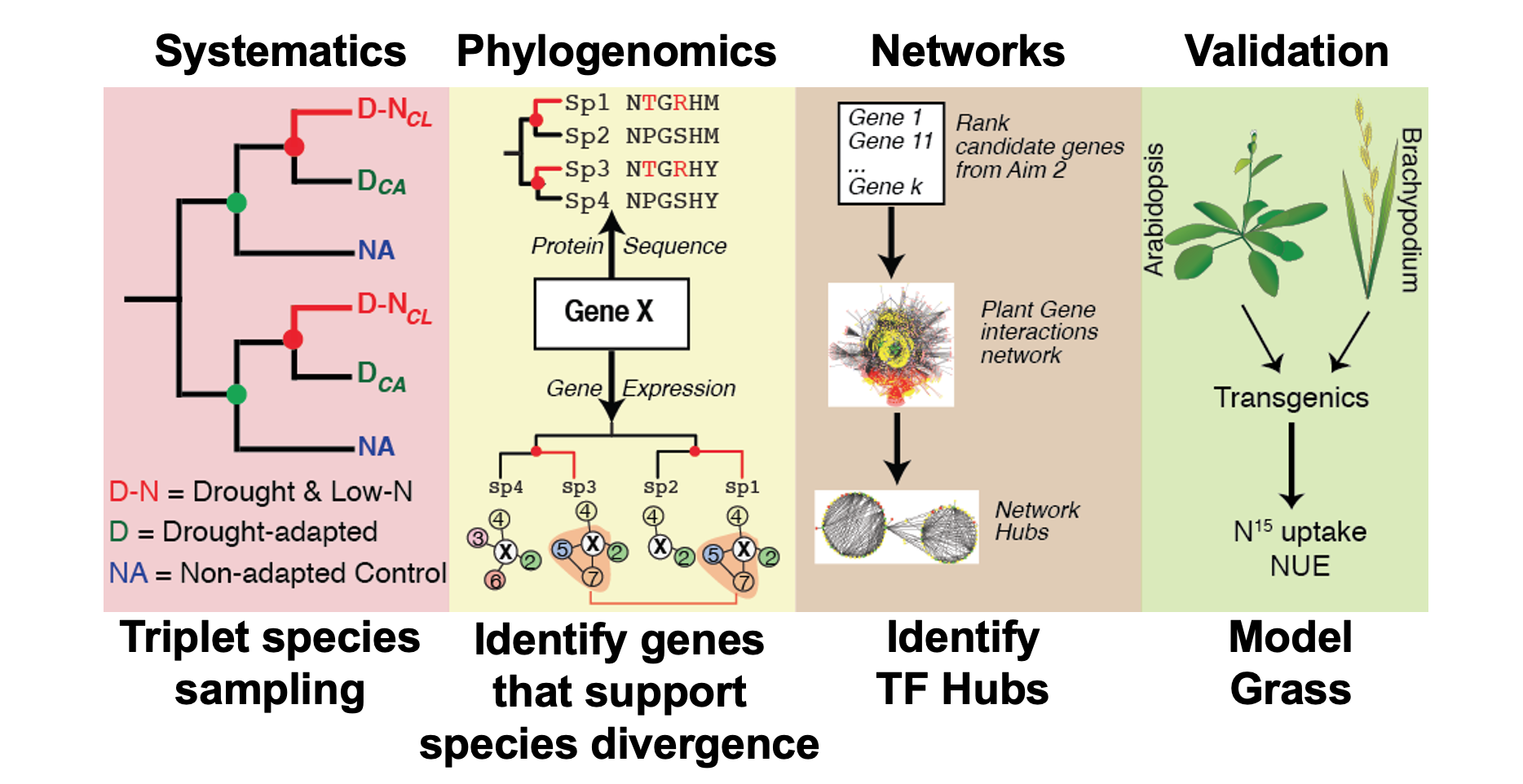
EvoNet is a Department of Energy Biological and Environmental Research Sustainability (DOE BER) project that aims to identify the key genes and gene regulatory networks that enable “extreme survivor” plants to adapt and grow in marginal, extremely nitrogen (N) -poor soils in the hyperarid Atacama Desert. These “extreme survivor” species cover the main branches in flowering plants, and include 7 grass species of particular interest for biofuels. We focus on 28 “extreme survivor” Atacama species and compare their genomes to Californian “sister” species that live in a N-replete conditions in arid (27 species) or mesic (27 species) environments. Deep RNA-sequencing of these “triplet species” was used to fuel a novel phylogenomic analysis that helps identify individual genes that support the evolutionary divergence of the extreme survivors in Atacama Desert from their sister species in California. The genes thus identified will help to discover the mechanisms underlying physiological and developmental processes that allow plant survival in nitrogen-poor, dry soils. The genes and network modules so uncovered can potentially be translated to biofuel crops to greatly increase biomass and nitrogen use efficiency in marginal, low-fertility soils.
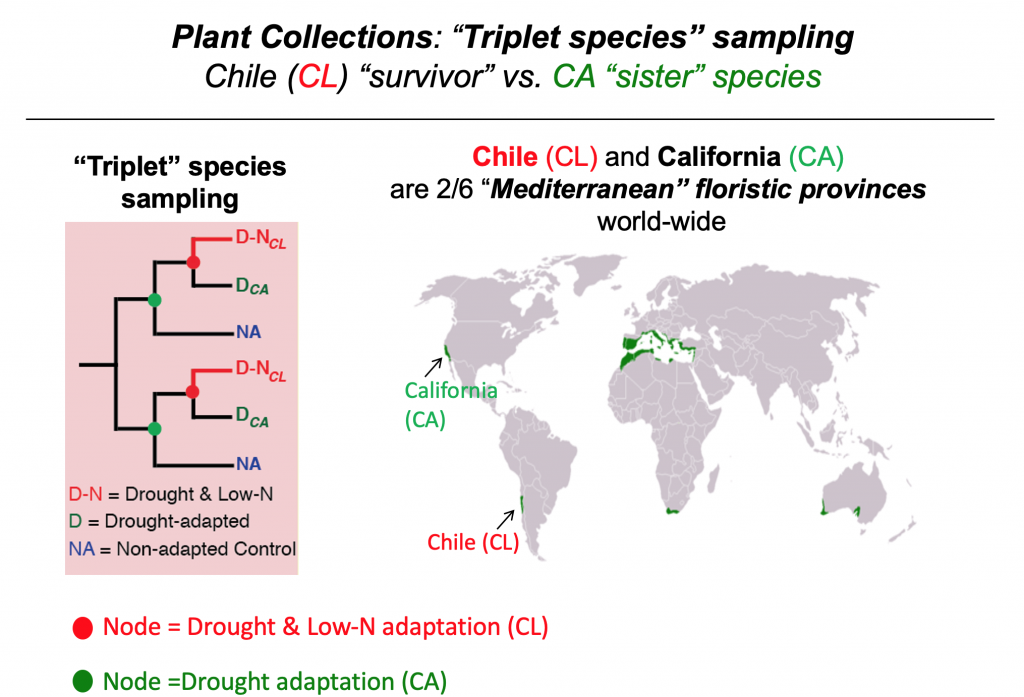
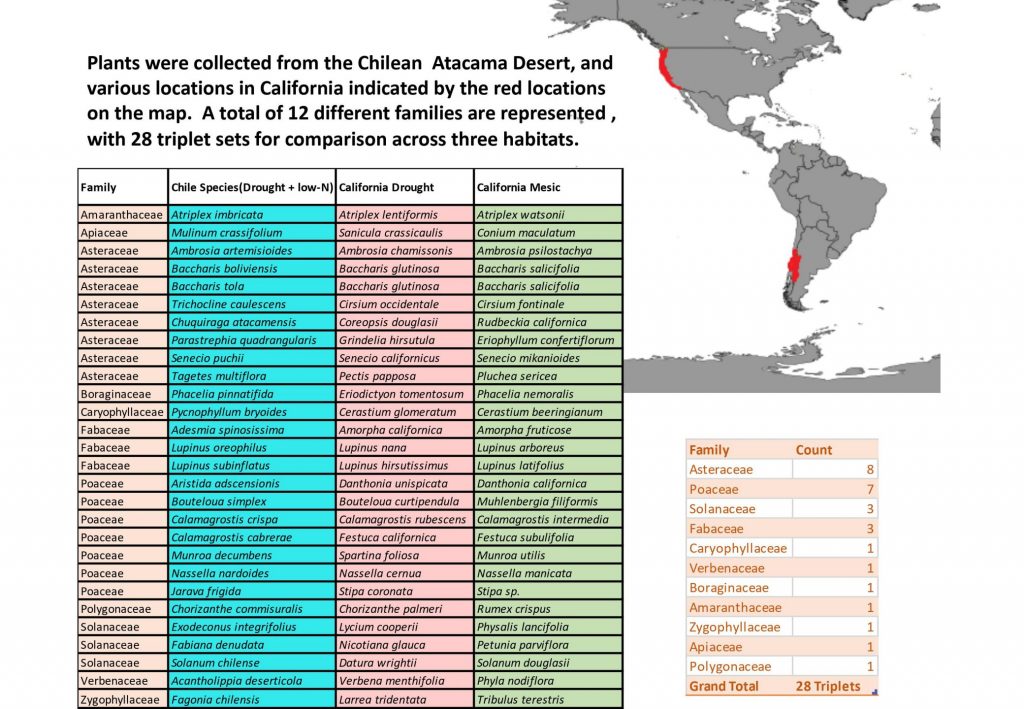
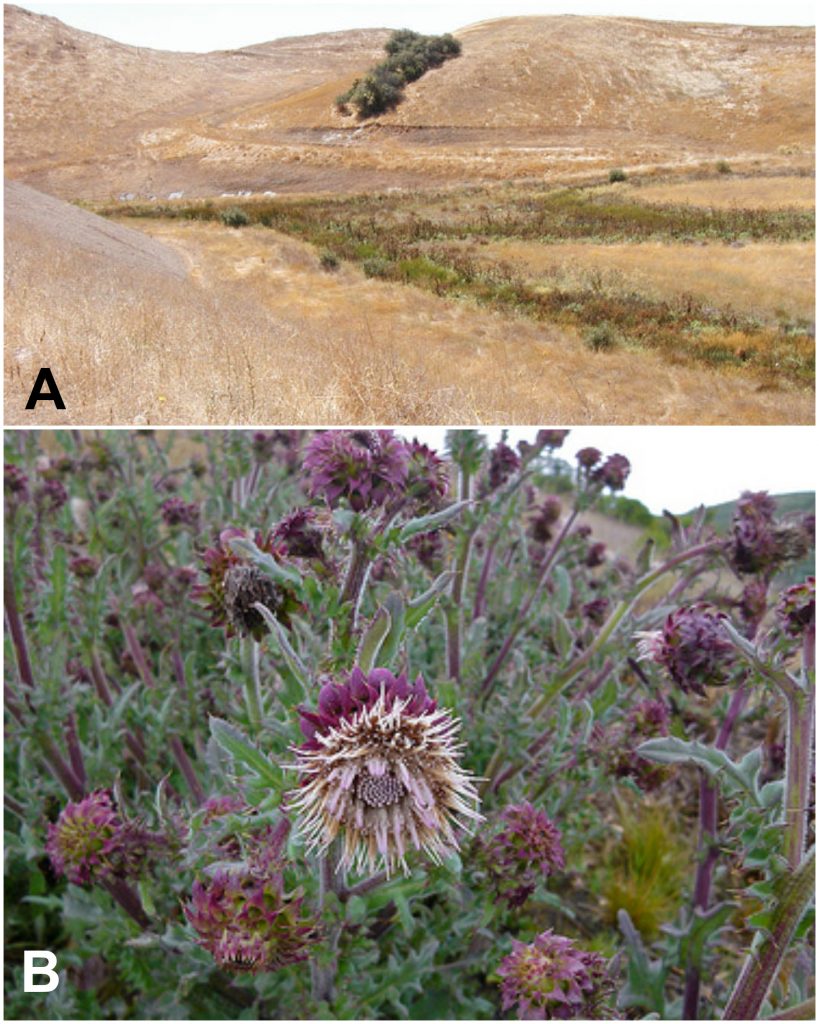
Cirsium fontinale
California Mesic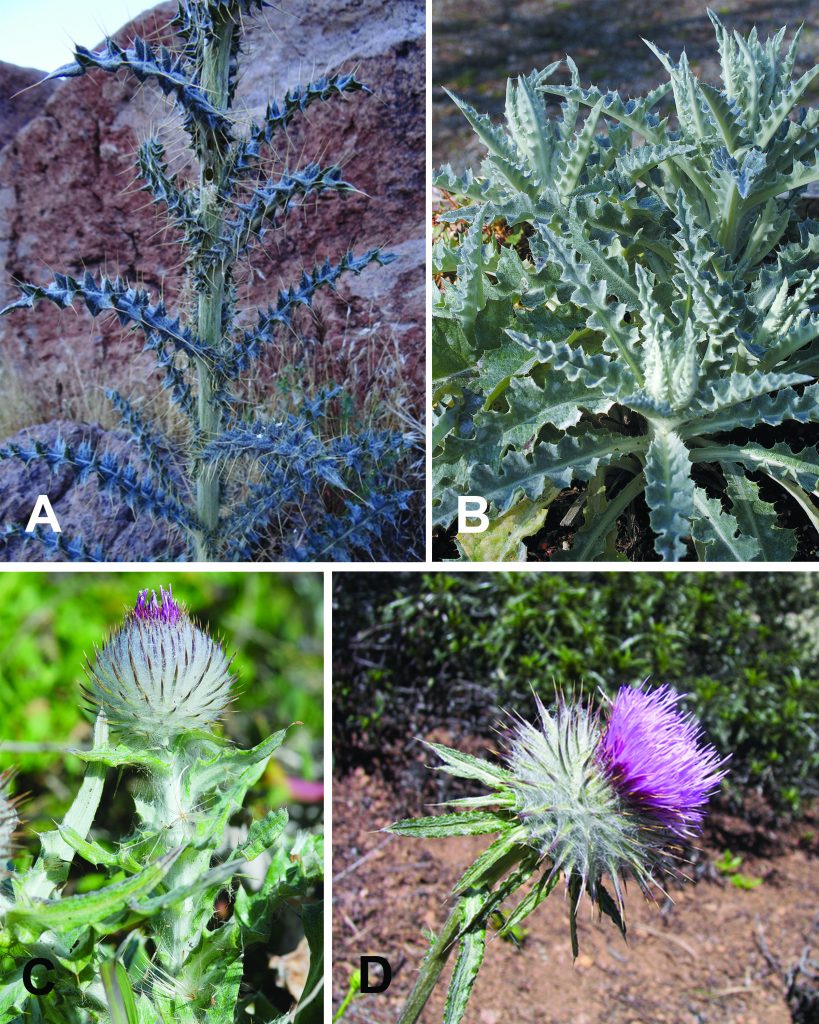
Cirsium occidentale
California Drought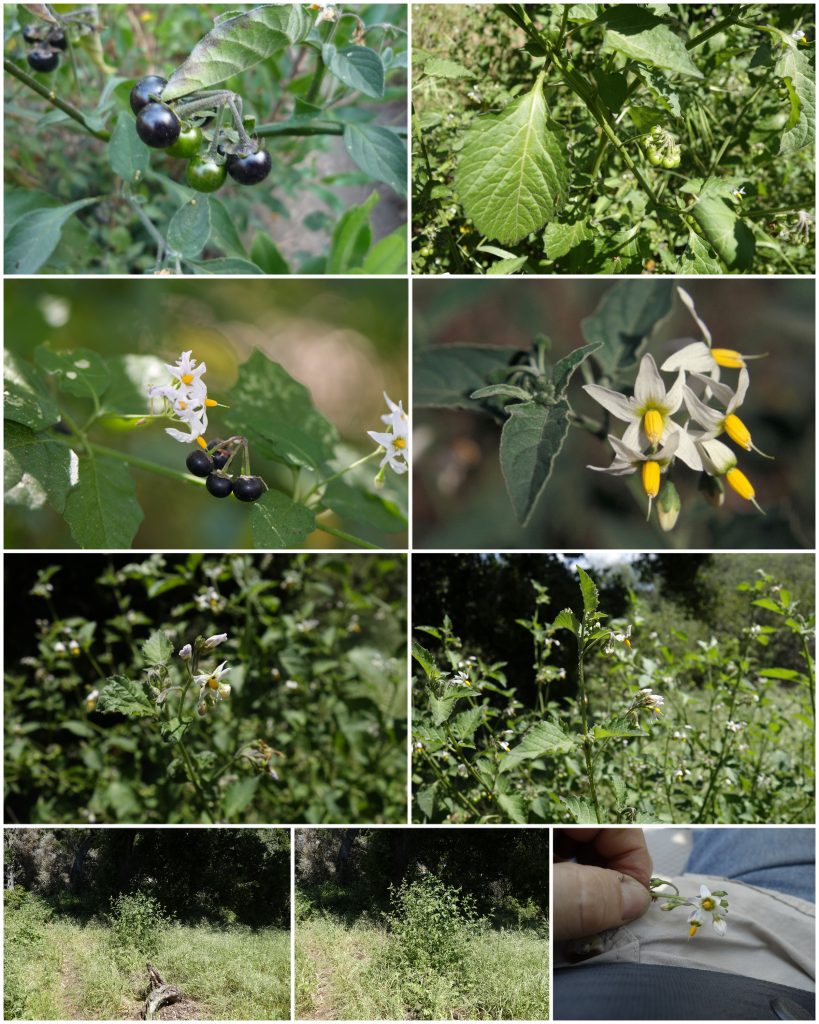
Solanum douglasii
California Mesic
For more details on the EvoNet project, please email Dr. Gloria Coruzzi – GC2@NYU.EDU